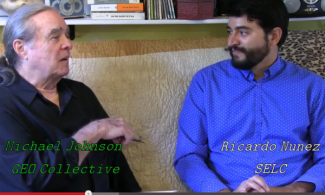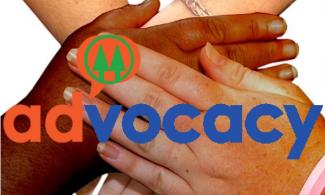The debate over who lost Detroit and how to fix it rages on while Politico reports in “Break-up-the-big-banks fever hits the states” that legislators from “at least 18 states have introduced resolutions this year calling on Congress to split up banking giants by putting back in place a wall between commercial banking, taking deposits and making loans, and investment banking, the world of traders and deal-makers.” It turns out that quarantining the banksters and salvaging our cities have a lot in common in an America that currently ranks below Zimbabwe in global income inequality and social mobility.
Reading, Pennsylvania’s fifth most populous city, stands out as an example. In 2006, it was voted its most dangerous and in 2010 had the largest number of citizens per capita living in poverty. Today, Reading is self-revolutionizing through its visionary mayor, city staff, local committed business leaders and key progressive unions like the United Steelworkers to pull itself back, step by step, from this brink and reclaim its own resoures for the people who live there. Reading’s new goal is to pay down debt and pension obligations while keeping enough funds available for downtown economic reinvesting.
Aided and abetted by like-minded allies such as the Heartland Capital Responsible Investment (RI) forum and the nationwide union-coop movement, this “made in Reading” civic tool kit consists of a Community Development Corporation that will provide accessible revenue to all sound business plans presented to a city-controlled Municipal Finance Authority. Local worker-owned cooperatives will be encouraged through funding provided by moving the city’s daily deposits from Wall Street banks to main street banks. This revolutionary – but eminently practical – move intends to channel the city’s monetization strategy away from outside special “vulture” interests and politically connected cabals that specialize in outsourced privatization. Instead of diverting legacy capital from local citizens and residents and into the carpetbagger pockets of exterritorial dealmakers who pay themselves over $10 million per deal of Reading’s money just to set up these kinds of transactions, Reading is choosing to invest its own money and resources in itself.
The era of municipal reinvention into vibrant local living economies is upon us with new economy paradigms shifting below our civic feet. America’s revolutionary cities like Reading and Detroit are engaged in hard fought, white knuckle campaigns against superbly funded vested interests that charge eight figure fees for each transaction and then walk away to deposit their thirty pieces of silver once the deal is signed, leaving “those who still live there” holding the proverbial bag of suffocating debt, all stocked up on no way outs. While civil disobedience, strategic foreclosures, and headlines dominating bankruptcies still grab public attention, the policy ground war is being fought with a return to the town commons and to a reinvigorated stakeholder economy founded on local ownership and recycling profits from the people, for the people, by the people.
What we are seeing now is more than a tale of multiple cities going rogue or blue versus red states austerity versus stimulus debates. Instead, this August of our discontent is witness to a populist, Glass-Steagall Act redux movement led by Massachussetts U.S. Senator Elizabeth Warren to contain “too big to fail and go to jail” financial institutions on one side with courageous and desperate cities on the other side saying “never again” to exterritoral plundering, outsourcing, and dismantling by privatizing, predatory capitalists. On the way back up, written off cities are turning to new forms of stakeholder ownership, new tools to exercise local sovereignty, and new expressions of civic solidarity to push back the Wall Street marauders, invaders, and barbarians at every gate who distort their equity for other’s debt at any opportunity.
Leadership perseverance, openness to eclectic and hybrid solutions, and political consistency will determine how the Reading Revolution model can serve as a pathway forward for other U.S. cities trapped in similar circumstances. Reading can become a prime example of how to build the economy back from the bottom – up so that then growing the economy from the middle-out stands an even chance. Meanwhile, as the New York Times Editorial Board (“No Banker Left Behind”) notes, “Municipal officials are prey for Wall Street” through “the obscene privileges of banks that allow them to prosper on the failings of others.”
The key issue facing America’s liposucked cities is how to monetize assets without giving up public sector control. Already in Detroit, vulture investors are circulating armed with major law firms and partner banks to unleash ready-to-go privatization plans by pressuring state and financial regulators to cannibalize downtrodden municipal downtowns and sell off public assets for pennies on the dollar. Everyone knows what comes next: the guarantee of worsening essential services that hapless residents without a voice are forced to endure, especially if they can’t afford to move. This self-fulfilling formula accelerates with each successive neighborhood disintegration, imploding from the middle out while offering ample opportunities for those who still can afford to live in glass houses to point the finger at their unfortunate neighbors and then finger government as the source of all evil.
Government is not perfect. Millions of American working class homeowners wished they could have refinanced after the 2008 Great Recession hit their mortgage payment capabilities but publicly bailed out lenders told them they couldn’t qualify for low rates because of tight rules starting with the refusal by Fannie Mae & Freddie Mac to consider any restructuring mechanisms. Both Fannie and Freddie, repeatedly bailed out by the U.S. taxpayer, were exposed as betting against the taxpaying citizens of the United States through securitization bets placed with Wall Street banks. The New York Times and National Public Radio reported that Fannie & Freddie had committed over $5 billion to portfolio-held securities which were based on homeowners staying in the more expensive mortgages that both institutions controlled. Simply put, government-backed institutions bet against the welfare of their citizen clients and denied them a chance to stay in their homes, turning owners into renters but without being convicted and fined for flagrant conflicts of interest. America’s stubborn structural unemployment rates continue to be directly impacted by such myopic, labor mobility-limiting policies.
Further reading…Check out this article from bctv.org: New Non-Profit to Aid Economic Development Will Form in Reading.
Cross-posted via the One Worker, One Vote blog.




Add new comment